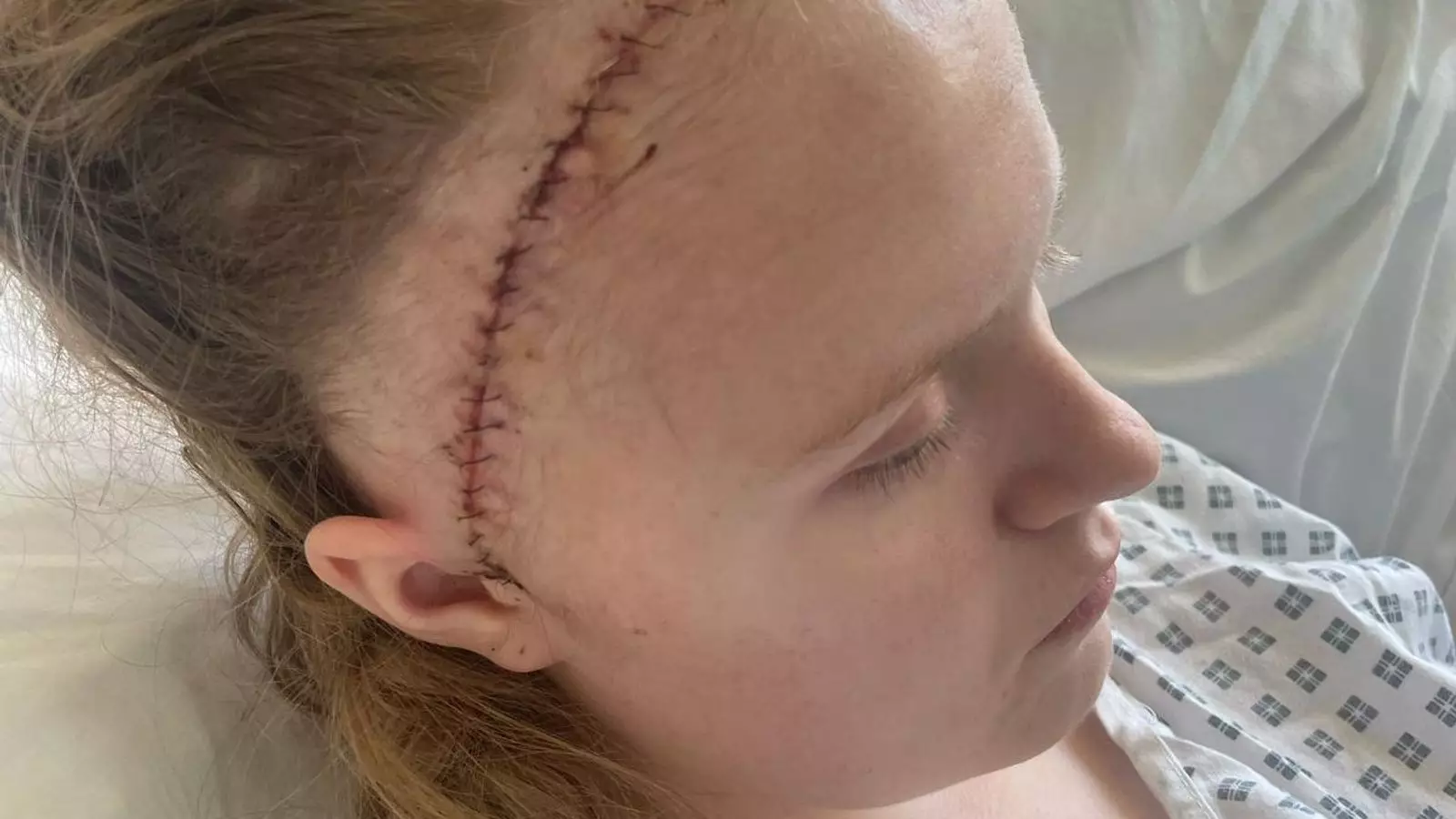The harrowing tale of Ellie Morris-Davies stands as a testament to resilience in the face of unimaginable adversity. Diagnosed with a cavernoma, this young girl’s life transformed drastically in a mere few months as she navigated the shadows of one of the most complex medical conditions rarely encountered in children. The procedure that saved her life is extraordinary and fraught with both risks and rewards; not only did doctors perform multiple surgeries, but they also engaged in a rare practice of storing part of her skull in her stomach, a measure that, while shocking, underscores the lengths to which medical science can go to safeguard a young life. It raises crucial questions about the ethical boundaries in pediatric medicine and the desperate measures families must sometimes confront during health crises.
The Reality of Cavernomas
Cavernomas, as many may be unaware, are abnormal clusters of blood vessels that can quietly wreak havoc without presenting any initial symptoms. For a majority, the reality is a hidden threat lurking within. This fact paints a dire portrait of the medical community’s categorization of seemingly benign yet potentially perilous conditions. Ellie’s situation shines a spotlight on the underdiagnosis and misunderstanding of neurological disorders, especially within younger demographics. The sheer rarity of symptomatic cavernomas, reported in roughly one in 400,000 individuals, often leads to a delay in critical care, essentially jeopardizing lives like Ellie’s.
What is profoundly unnerving is that these life-altering conditions can go unnoticed until they reach a crisis point. It draws attention to the need for more robust awareness and education around neurovascular disorders that predominantly impact younger individuals. There’s something inherently troubling about how we address these hidden adversaries in our healthcare systems—asserting the importance of vigilant monitoring and early diagnosis.
Motherhood and The Weight of Hope
Joanne Morris-Davies, Ellie’s mother, embodies the emotional turmoil and burdensome yet hopeful journey of caregiving. From initially hoping for a misdiagnosis to grappling with the harsh reality of her daughter’s condition, her story resonates with countless parents who face similar dilemmas. In many ways, she represents the silent army of mothers who navigate the tangled webs of pediatric illness, forging ahead with unwavering determination. This woman’s bravery shines through, as she faithfully maintains a steadfast presence, offering emotional and physical support throughout Ellie’s recovery.
One can’t help but wonder—how do parents muster the strength to endure such trials, often feeling isolated and exhausted? The psychological toll of bearing witness to a child’s suffering is profound, and Joanne’s experience amplifies the need for comprehensive support systems for families grappling with chronic illness. It serves as an indictment of our healthcare frameworks, which often neglect the emotional landscape of patients’ families.
The Road to Recovery and Rehabilitation
Ellie’s journey towards recovery exemplifies not just physical healing but also the reclamation of identity. Her passion for dance—a lifelong pursuit—was put to the test as she confronted the daunting challenges of regaining her mobility and speech. Engaging in daily physiotherapy and fervent practice with her dance instructor, she embraces a renewed sense of purpose that transcends mere rehabilitation; it is a dance with life itself.
The emotions surrounding her return to the stage are undoubtedly intense. Here is a vibrant young woman, once on the brink of losing everything she loved, now singing and performing again. It evokes a magnificent image of triumph, yet hidden within it is a reminder of the force of adversity that can sweep through our lives unexpectedly. How many Ellies are there, still in the shadows of their battles, yearning to reclaim what once was?
Ellie expresses an awareness of her ongoing struggles and frustrations. Yet, it’s precisely this grappling with imperfections that renders her story relatable and inspiring. She stands as a symbol, not of flawless triumph but of gritty determination and unwavering hope, encouraging others to confront their own adversities with grace.
This is more than a narrative of medical success; it is a powerful reminder of the resilience humans can muster against unyielding odds. Ellie’s journey beckons us to reflect on our own lives, encouraging a profound appreciation for the unique battles faced by each individual, especially the often-overlooked struggles of children.


Leave a Reply